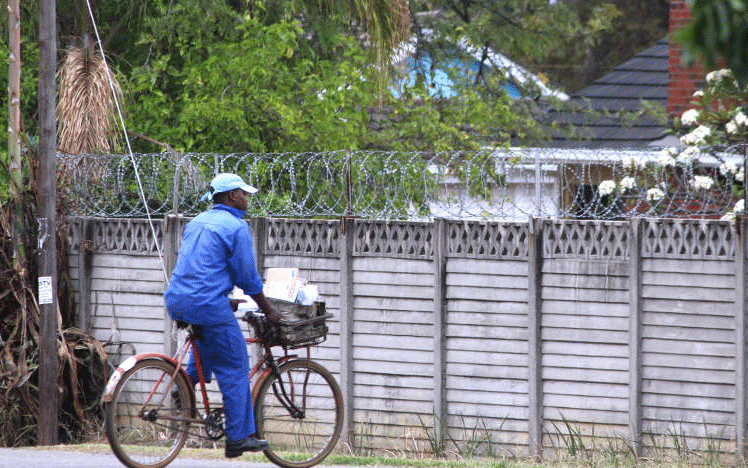
ONCE upon a time, there was the profession postman. While the profession was largely male-dominated, a few women were part of it. The profession was more prominent before egalitarianism took centre stage, hence the title postman.
They worked for the post office and their job was, or is still in other countries, to deliver and collect letters.
From the early 1980s up until the 1990s, the profession was prominent and dominant across the country because it played the same crucial role as the internet on phones and computers.
The postman was adored, just like data today. They delivered important letters and messages. They connected the world.
Sending or receiving a letter domestically would take anything between seven to 14 days, while internationally it would take anything from two weeks and above.
The postmen performed their work using bicycles. In Zimbabwe, they wore grey uniforms and rode red bicycles. One would never miss them in those distinct colours.
For families which used to subscribe to newspapers and other daily deliveries, the postman would be at their doorsteps or gate everyday.
In some instances, they were accused of being in relationships with married persons.
- Ghetto Dances: The postman who could not ride a bicycle
- Death of postman: Death of a revolution
Keep Reading
I had two uncles who worked as postmen. They loved their job. Every Sunday, they would sit and polish their brown shoes and ensure their uniforms were clean and well-ironed ahead of a busy week.
They both enjoyed their job of delivering news and letters to their clients, but most importantly connecting with the people. Because of their job, they knew a lot of people and they were respected and sometimes suspected.
In the mid-1990s, they started complaining that they were overwhelmed by work. With increasing literacy and a growing economy, the volume of mail was increasing. In a normal business situation, this would be a sign of good business and job security.
But that was also the time when the internet started filtering through from industrialised nations to developing countries.
My two uncles spoke about the internet. One was convinced that it would not replace the role of a postman, while the other felt if letters could be delivered via a computer, he did not want to see himself redundant. So, one stayed, while the other worked on acquiring a driver’s licence as a fall-back plan ahead of the threat of the internet.
By the year 2000, they both still worked for the post office, but one was now driving and working as a messenger in the parcel department, while the other continued to ride the bike delivering mail to households and companies.
For the one who rode the bicycle, it became more and more clear that the internet was fast killing his profession as most mail was now delivered via the internet, and he no longer had much to do.
He grew frustrated even though he did not have much of an option other than to hang around waiting for the future to determine his fate or for retirement. The one who acquired a driver’s licence also continued to grow in the parcel department as the internet could not deliver parcels. His job grew more and more relevant, while my other uncle grew frustrated until his retirement.
They both retired almost at the same time as they were of the same age. Their retirement packages were different because the one in the parcel delivery services had grown in his job and became a supervisor.
Even with huge differences in income, they still maintained a close relationship. They socialised together, but the one who retired as a bicycle postman was disgruntled even at retirement.
Foresight is what differentiated my two uncles. One lacked vision and did not see the internet as a threat of substitute unfolding before him. He was in denial hoping that the internet was just an overnight fluke that would come and pass.
The other one saw the danger and prepared to adapt to the newly unfolding phenomenon. His sense of foresight paid off and helped him to grow in his career and even helped him past retirement as he continued to use his driving skills long after retirement, while the bicycle postman stayed at home disgruntled.
Such is the state of our politics where even as current opposition parties are condemned to their deathbed, some people still invest their hopes. When Morgan Tsvangirai formed the Movement for Democratic Change in 1999, there were two pertinent issues at stake: The economy and jobs.
This is why his party was seen as a labour movement whose composition at the time was an amalgamation of economic and capitalist interests. Those two factors triggered the emotions which stirred the people to go and vote for his party.
Today, those two major stakes have vanished from the table and have become nothing but aspirational. There is nothing to defend or protect as the jobs and the economy have been destroyed.
The only pertinent agenda right now is to rebuild the economy and that is less emotive than protecting existing jobs and the economy.
The drivers of political change have shifted and the political arena itself is now driven by opportunism.
And some people, if not the majority of those who support the opposition, are still riding a red bicycle just like my postman uncle.










